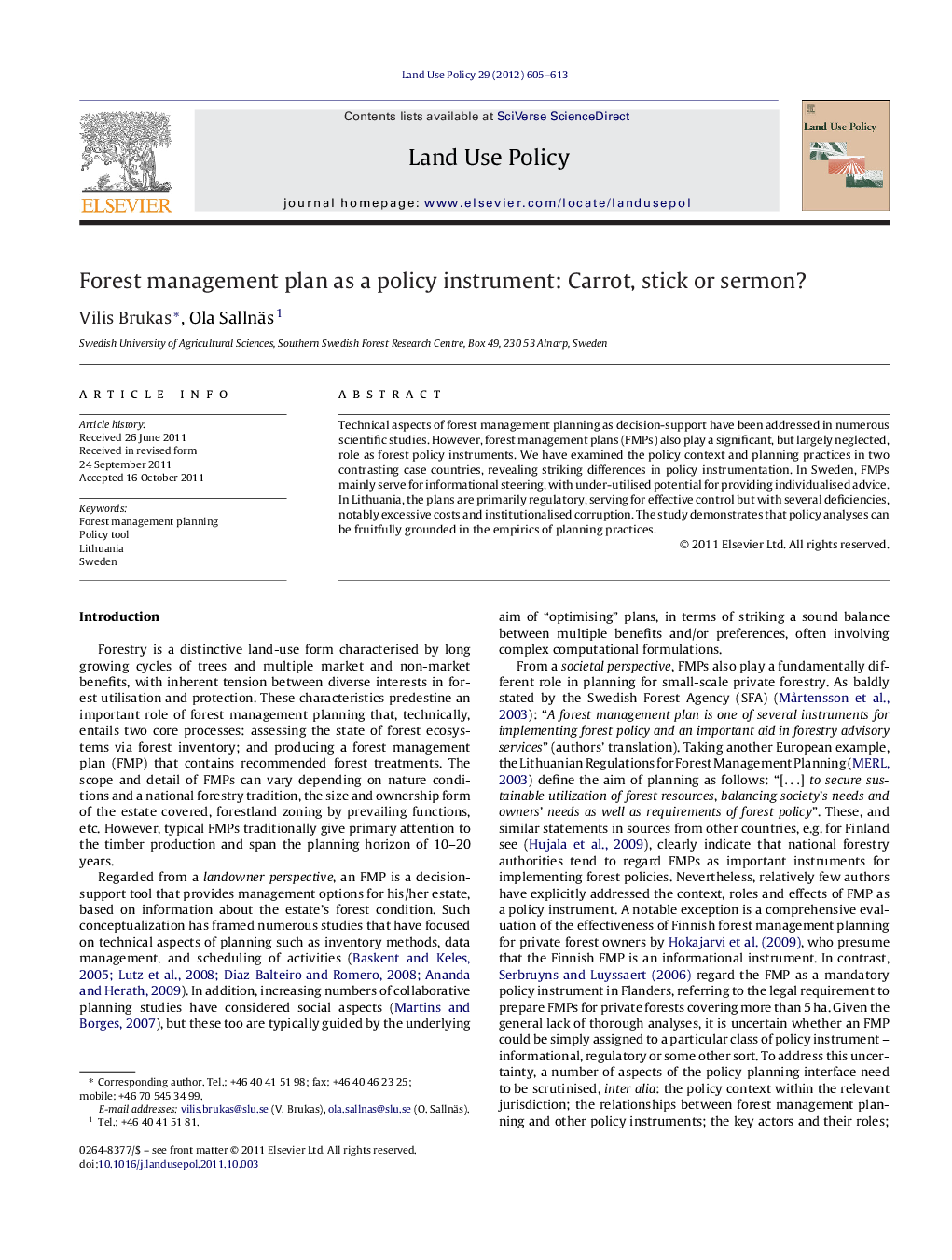| Article ID | Journal | Published Year | Pages | File Type |
|---|---|---|---|---|
| 93290 | Land Use Policy | 2012 | 9 Pages |
Technical aspects of forest management planning as decision-support have been addressed in numerous scientific studies. However, forest management plans (FMPs) also play a significant, but largely neglected, role as forest policy instruments. We have examined the policy context and planning practices in two contrasting case countries, revealing striking differences in policy instrumentation. In Sweden, FMPs mainly serve for informational steering, with under-utilised potential for providing individualised advice. In Lithuania, the plans are primarily regulatory, serving for effective control but with several deficiencies, notably excessive costs and institutionalised corruption. The study demonstrates that policy analyses can be fruitfully grounded in the empirics of planning practices.
Graphical abstractFigure optionsDownload full-size imageDownload as PowerPoint slideHighlights► This study examines the policy instrumentation of forest management plans (FMPs) in two contrasting case countries: Sweden and Lithuania. ► An FMP is a composite policy instrument. ► An informational modality prevails in Sweden, but the advisory capacity of FMPs is underutilised. ► Lithuania relies on regulation, with excessive stipulations and controls. ► Policy instrument analysis can enrich both planning and policy scholarship.
